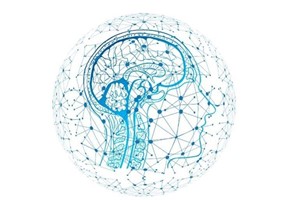Andrew Wells, Client Director of Healthcare, Serco Middle East and Andrew Prince, Director at Serco Global Healthcare Centre of Excellence discuss the importance of digitising healthcare, and how it can benefit both health organisations and patients, and save time and costs for both.
You can listen to the full podcast episode, Digitising Healthcare To Transform Patient Care, here: https://bit.ly/2UvshBo
Now more than ever, there is an opportunity to reinvent the healthcare system in the Middle East. In the past, the focus was centred around the physical hospital infrastructure, but now the changing healthcare systems in countries like Saudi Arabia and the UAE has shown that there is a fundamental opportunity to accelerate the digital transformation of primary and community care.
One of the few positives of the pandemic is that it has acted as a catalyst for digital transformation.–Countries around the world are struggling to manage aging populations and long term health conditions, it is simply not feasible to have patients continually going back and forth to hospital beds. In this day and age, we can and should do better than that.
What is needed is a healthcare system that helps meet the needs of the individual patient to drive a better experience and ultimately better outcomes. By doing so, it enables clinicians to focus their time on what they do best: to look after the most critically ill patients, whilst simultaneously satisfying the government in terms of managing the overall needs of the economy. This is why the digitisation of healthcare is so crucial, as it will benefit both health providers and patients alike; through digitisation, countries in the region have the opportunity to become world-class centres of excellence for healthcare.
Teleconsultation and Remote Care Monitoring
In order to do this, we must look at the role that technology plays in aiding this vision on a micro level. It’s a mind-set change as well, but we are already making strides – an example is that people are getting used to making appointments online, and in some cases, having video consultations with clinicians rather than face-to-face appointments.
One of the most significant strides forward this year is the adoption of remote care monitoring, which allows digital technologies to monitor patient care without a clinician physically being with the patient.. From taking vital signs such as blood pressure, blood sugar levels and temperatures, technology allows for the accurate detection or deterioration of chronic conditions, whether that is diabetes or heart disease for instance, without having to visit emergency departments.
Ultimately this is about using technology to gather patient data outside of traditional healthcare settings; it is about moving healthcare into the house and bridging that space where people live, work and play. By managing this remotely within the home environment, comfort and engagement levels increase; and by increasing engagement, remote patient monitoring can help improve quality of care. Not only are patients empowered to better engage with their own care, but clinicians are also better equipped to understand and manage their patients’ health situations, with a constant stream of data that provides a much clearer picture of the patients’ health.
Embracing technology
We see this very exemplified through The Remote Healthcare Platform in Abu Dhabi (https://doh.gov.ae/en/covid-19/Remote-Healthcare-Platform), which has highlighted how much the Middle East is embracing this drive towards digitisation and home care. The platform enables patients to access prescription renewals, especially if they are in one of the categories that require isolation from other members of the community because of their vulnerabilities.
An extension of this is the acceleration of digitisation in the Saudi new model of care, which offers a wide range of healthcare services including the assistance of patients to self-isolate during COVID-19, at-home consultations and greater connectivity and communication between health providers and the patient. We are seeing very clearly how the pandemic has prompted people to think differently, with technology being the enabler to support this.
Further to this, we are seeing the rapid acceleration of real-time tracking of equipment in hospitals more than ever before. For example, heart monitors or infusion pumps are tracked, which helps us to deploy resources more efficiently across the hospitals, allowing for the tracking of equipment and people..
Understanding the role of data
Naturally, the digitisation of healthcare models is creating more data. Artificial intelligence can be used to analyse this data, but we need to find ways of making sure this doesn’t overwhelm the clinician with too much information to the point where they can’t process it. This is where companies like Serco can add value. Our heritage in healthcare and focus on putting the patient at the heart of the experience enables us to utilise the technology tools to capture, analyse and present relevant data back to the clinician so that they can take the appropriate action with the patient. It is about providing time-pressed clinicians with information that is easy to read and disseminate. This allows them to make better informed decisions and focus on what matters the most: delivering world-class care to the patient.
This is exemplified through Abu Dhabi’s central patient record, Malaffi, enabling two thousand care providers in Abu Dhabi to share information about patients which aids the decision-making process. It provides patients with more choice and prevents duplication within the system, thus creating a better patient.
This is where the care given within the hospital environment and care given outside the hospital needs to be bridged. Once the patient is discharged, technology helps through providing the connection back to the health provider. This data enables effective monitoring of the patient’s condition (for example, blood pressure, weight, temperature etc.), and encourages patients to be more actively involved in the management of their condition, building-up good habits of self-care. This, coupled with the analysis of the data showcases the impact digitisation has on healthcare..
In 2020, digitisation in the healthcare sector has seen progression in leaps and bounds. The case for this is powerful: in the quest to deliver exceptional care for patients, technology is empowering more community care; patients who don’t need to be in hospital can be monitored and recover from home. It is enabling us to track equipment and analyse data to distil key information in ways that empowers better and faster decision-making. Ultimately, when it comes to the long-term future of healthcare and economies in the Middle East, technology is the ticket to unlocking better outcomes for all.
Serco Healthcare













